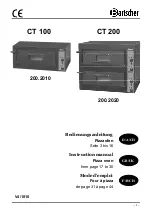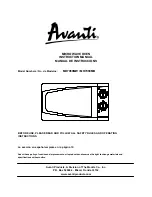
22
Cleaning Instructions
• Wipe the oven clean after every use.
• Wipe up spills. Avoid leaving alkaline or acidic substances (such as lemon juice or vinegar) on the oven surfaces.
• Do not use cleaning products with a chlorine or acidic base.
• Never clean the interior, panel, lid, trays and all other parts of the oven with tools like a hard brush, cleaning
mesh or knife. Do not use abrasive, scratching agents and detergents.
• After cleaning the interior parts of the oven with a soapy cloth, rinse it and then dry thoroughly with a soft
cloth. Leave the doors open to allow the cavities to completely dry
• Never use flammable agents like acid, thinner or petrol when cleaning your oven.
• Do not wash any part of your oven in a dishwasher.
Cleaning the Outside of the Cooker
Wipe the outside surfaces often, using warm water and a mild household detergent. Any stainless steel parts may
also be cleaned with a suitable cleaner.
Cleaning the Oven Door Glass
Do not use harsh abrasive cleaners or sharp metal scrapers to
clean the oven door glass since they may scratch the surface,
which could result in the glass shattering.
Before you start cleaning your cooker, please:
• Read the cleaning instructions and the ‘Safety Warnings’ sections.
• Turn the cooker off at the mains socket.
• Allow the cooker to completely cool down before cleaning.
• Do not use a steam cleaner.
• Do not keep flammable substances in, on or near the cooker.
Take care when handling parts with glass,
knocks, chips, heavy handling and dropping
could cause the glass to shatter.
• If you choose to use a commercial stainless steel cleaner, please read the label
to make sure it does not contain chlorine compounds as these are corrosive and
may damage the appearance of your cooker.
• Do not use abrasive cleaners, cloths or pads on the outside surfaces.
• Immediately wipe off any caustic cleaners if they are spilled onto the oven.
LFTG90W14_IB.indd 22
09/02/2015 17:51














































